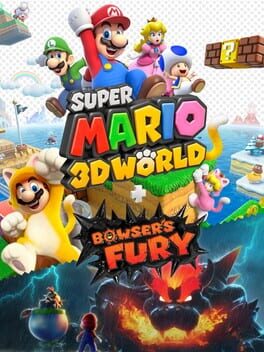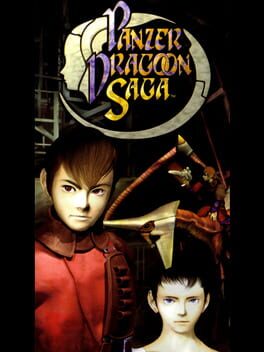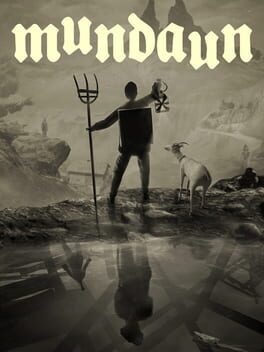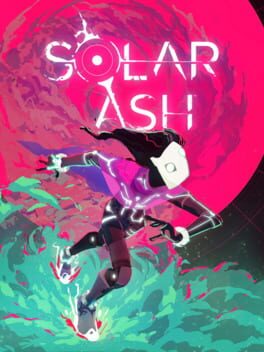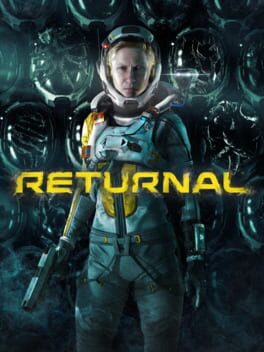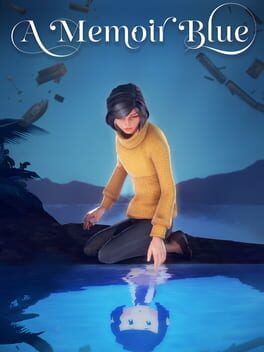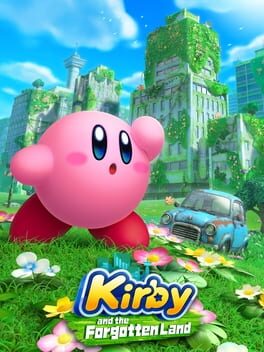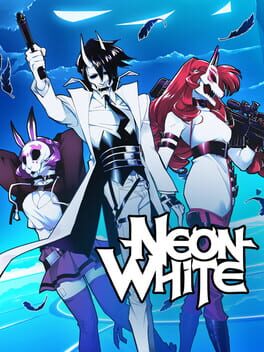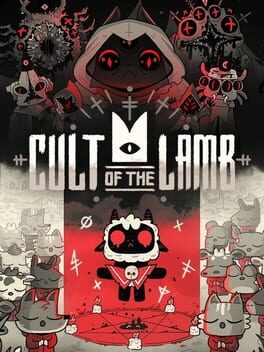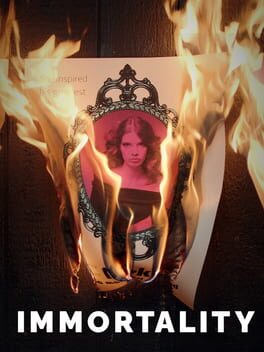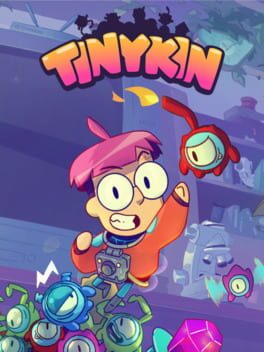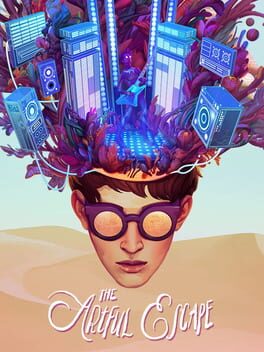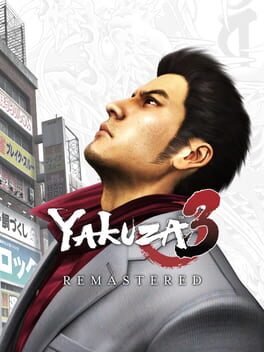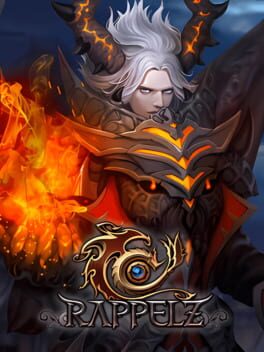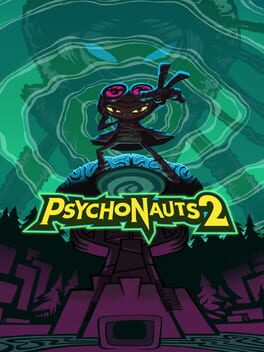I have realized that I really don't like course-based Mario games at all. 3D World is fine, sure, but wow did it leave me absolutely unfazed and cold. Perhaps it is due to the quantity of ideas devalueing the quality of the experience as a whole and robbing it of a cohesive identity. Part of it definitely is the fixed camera, which absolutely infuriated me to no end in many levels.
Bowser's Fury, on the other hand, absolutely slaps, might I say. From the first minute I had more fun than the whole of 3D World. The inventory system is a really neat concept that could shine in a dedicated game not tied to the confines of 3D World systems. I hope this is a test run for a truly open world Mario game, but this is a stellar product all on its own.
Bowser's Fury, on the other hand, absolutely slaps, might I say. From the first minute I had more fun than the whole of 3D World. The inventory system is a really neat concept that could shine in a dedicated game not tied to the confines of 3D World systems. I hope this is a test run for a truly open world Mario game, but this is a stellar product all on its own.
1998
I really wanted to love this game, it has so much going for it, fantastic music, full voice acting, a surprisingly innovative and unique battle system and a strong story. Ultimately, where it falls short for me though, are mostly technical and artistic issues. This game pushes 3D on a console that can just barely support it, resulting in extremely low draw distances and characters losing most facial features and shapes to pixelation and low fidelity outside of cutscenes which made it difficult to connect to the story at all in the first half. This is a thing that has to be really bad for me to fault the game. The game is really short for a JRPG, which is a positive and it is paced really well for the duration of about 13 hours it took me, however the game still has to rely heavily on reusing areas and mechanics endlessly, seriously hurting my enjoyment when flying through the same corridors, fighting the same enemies and deactivating the same terminals for two hours. I can definitely see artistic appeal and justification for some of that. I really really like the whole aesthetic and universe the game builds, mixing Dune, Neon Genesis Evangelion, Star Wars and many other interesting influences into a unique blend creating a ton of mysterious lore of ancient civilizations. The game is way more subdued and restrained in its tone and presentation than most other JRPGs of the time and even since, often evoking the same serene melancholy and beauty seen in Fumito Ueda's games before tipping the scale of minimalism and beauty in simplicity to the side of dull repetition unfortunately. I believe a faithful remake of this game, mainly adressing the technical shortcomings and adding just a bit of environment art and enemy variety could be one of my favorite games of all time.
2021
This game is unique if nothing else, for films I could draw comparisons to Midsommar or The Witch but for games this stands pretty much alone and is worth to try just for that. The visual style isn't always the prettiest, the pencil-drawn textures aren't the exciting feature that they were made out to be, but wow can this game look absolutely stunning in certain environments, making these all the more rewarding. The gameplay features some unique twists that you wouldn't expect going into this game for the first time, but ultimately it is the fantastic atmosphere, absolutely beautiful and haunting score and sound design and firm grasp on unsettling imagery and careful tuning of the horror-screws that shine bright in this game.
2021
This is definitely carried by an innate pleasure derived from the movement in this game and the stellar audio-visual experience, offering beautiful set pieces and surprisingly varied environments to skate through. What drags this game down though is first, an extremely shallow mechanical depth, offering the same experience throughout the game from the first minute. There are aspects of mastery, but not to a degree that reached a meaningful enhancement of the experience. I wish they leaned into the momentum of the movement way more heavily, allowing for emergent gameplay to happen where it already naturally feels like it could be there, just bubbling under the surface. The main collectibles in this are one of the weirdest systems I have ever seen in a game. It is a generic red substance in form of blobs or crystals found all over the place. It has one use: To upgrade your health bar. The problem: You can easily upgrade your health bar to the maximum before even fighting the first boss, after which you will lose one health upgrade, which you can just as easily rebuy again without any meaningful engagement or choice happening in the process. Either go all in: Remove all health upgrades at a boss and make it really useful to have them for the fights creating a decision for the player or just offer any kind of alternative, be it cosmetics. The current system adds to the overall feeling of the gameplay and systems not fully supporting the vision of the visuals, sound and story. I still immensely enjoyed my experience with Solar Ash, though and loved finding all the secret stashes and just being in this world.
2021
This game broke me. I rarely play games, and especially not AAA games, where I am genuinely unsure whether I can finish them. Returnal had multiple of these moments where hour long intense runs would come crashing down in an instant of brutal punishment and were it not for the incredible game feel and atmosphere I would have quickly abandoned it many times over.
But I didn't. In the end it was quite an anticlimactic final stretch where certain lucky perks meant that I was essentially invincible, rolling through the last two biomes and final boss after struggling for days on end beforehand to even make any progress. This inconsistency of experience is certainly an issue that frustrated me, cursing at the screen after being stuck with a run-killing malfunction (a risk system tied to certain items and chests where you can get a random penalty ranging from mildly inconvenient to disastrous, the removal of them being tied to equally random challenges, ranging similarly from easily doable to completely out of your control) or losing to a random enemy after not finding any health pickups in three rooms.
The intense difficulty combined with insanely long runs also heavily discourages experimentation, which is a shame because the weapon system allows you to unlock certain perks for weapons you use, heavily modifying the feel of a weapon. In the later runs this meant for me that I would always use my faithful carbine with four unlocked perks instead of trying my hand at a new weapon where I still have to unlock perks one by one. The randomized distribution of weapons of course means you won't always get the weapon you want, which lead in turn to cool moments of unlocking a perk like Full Auto on the rocket launcher, which wasn't a weapon I favored at all now becoming an absolute killing machine, completely altering the weapon. I just wish there was maybe an option to choose your starting weapon, encouraging experimentation at least a little bit more.
In conclusion, this is a fantastic game with extremely rough edges that fully envelops all of its mechanics and interactions in its haunting atmosphere and world building, surely to be appreciated even years from now.
But I didn't. In the end it was quite an anticlimactic final stretch where certain lucky perks meant that I was essentially invincible, rolling through the last two biomes and final boss after struggling for days on end beforehand to even make any progress. This inconsistency of experience is certainly an issue that frustrated me, cursing at the screen after being stuck with a run-killing malfunction (a risk system tied to certain items and chests where you can get a random penalty ranging from mildly inconvenient to disastrous, the removal of them being tied to equally random challenges, ranging similarly from easily doable to completely out of your control) or losing to a random enemy after not finding any health pickups in three rooms.
The intense difficulty combined with insanely long runs also heavily discourages experimentation, which is a shame because the weapon system allows you to unlock certain perks for weapons you use, heavily modifying the feel of a weapon. In the later runs this meant for me that I would always use my faithful carbine with four unlocked perks instead of trying my hand at a new weapon where I still have to unlock perks one by one. The randomized distribution of weapons of course means you won't always get the weapon you want, which lead in turn to cool moments of unlocking a perk like Full Auto on the rocket launcher, which wasn't a weapon I favored at all now becoming an absolute killing machine, completely altering the weapon. I just wish there was maybe an option to choose your starting weapon, encouraging experimentation at least a little bit more.
In conclusion, this is a fantastic game with extremely rough edges that fully envelops all of its mechanics and interactions in its haunting atmosphere and world building, surely to be appreciated even years from now.
2022
A Memoir Blue is an absolutely gorgeous game that is brave enough to tell exactly the story it wants to tell and nothing more in the hour it will take you to finish this. Unfortunately, the story it tells (or rather shows, as this game plays out entirely without words) is rather shallow and toothless and the audio-visual presentation does the heavy lifting to make this an absolutely worthwhile package in the end anyway.
This game is so weirdly good. The setting is an absolute star here, feeling so totally opposed but also perfectly natural to the cutesy Kirby presentation and doing a lot of heavy lifting in pushing and pulling this game into a unique and fresh direction. The combat is unexpectedly nuanced with decently deep mechanics on many of the available forms and a fantastic upgrade system turns these abilities into fascinating variations. An ability fusion system like in Kirby 64 would have probably cemented this into a masterpiece for me, though. Maybe next time. Still, this was an absolutely delightful time and I really hope this is a stepping stone for the future of Kirby.
2022
The defining achievement of Neon White seems to be turning people with no speedrunning or highscore-chasing ambitions around to do just that. That's certainly the case with me.
I didn't chase for the global leaderboards, shaving off milliseconds, but I made it a mission to get every Ace medal and collectible in every level, because doing that is less of a challenge to perfectly take each corner but instead distinct puzzle solving of how to use the tools available to you to get to a seemingly unreachable spot or solve the alternative path that is highlighted in the built-in hint system.
The reason why I was striving for the completion of every challenge is the excellent game feel and fantastic soundtrack, effortlessly putting you into a flow state within seconds. You also quickly learn that you can rely on the game being fair to you, gradually increasing the intensity but never forcing you to beat your head against a wall or requiring pixel perfect precision.
The writing I unfortunately didn't care for at all, it is -very much- woven out of internet culture, memes and tropes and while it combined with the voice acting probably evokes a semi ironic nostalgia for beloved english anime dubs, it certainly failed to make me care for the characters at all and the little vignettes that you unlock by collecting gifts in the levels felt hollow and pointless for the most part unfortunately.
This would normally be a bigger deal breaker for me than it actually ended up being, just because of the strength of all the surrounding elements. It is just so unbelievably fun and I can't help but love Neon White in its entirety because of that.
I didn't chase for the global leaderboards, shaving off milliseconds, but I made it a mission to get every Ace medal and collectible in every level, because doing that is less of a challenge to perfectly take each corner but instead distinct puzzle solving of how to use the tools available to you to get to a seemingly unreachable spot or solve the alternative path that is highlighted in the built-in hint system.
The reason why I was striving for the completion of every challenge is the excellent game feel and fantastic soundtrack, effortlessly putting you into a flow state within seconds. You also quickly learn that you can rely on the game being fair to you, gradually increasing the intensity but never forcing you to beat your head against a wall or requiring pixel perfect precision.
The writing I unfortunately didn't care for at all, it is -very much- woven out of internet culture, memes and tropes and while it combined with the voice acting probably evokes a semi ironic nostalgia for beloved english anime dubs, it certainly failed to make me care for the characters at all and the little vignettes that you unlock by collecting gifts in the levels felt hollow and pointless for the most part unfortunately.
This would normally be a bigger deal breaker for me than it actually ended up being, just because of the strength of all the surrounding elements. It is just so unbelievably fun and I can't help but love Neon White in its entirety because of that.
2022
Well, there went my weekend. Cult of the Lamb has one of the most addictive gameplay loops I have encountered in a while and this could have been devastating if presented in an endless time sink common in the genres blended here. Instead, this game feels perfectly trimmed and polished to respect the player's time. The game oozes style in the whole presentation, from all the brilliant UI work to a banging soundtrack. And the gameplay is there to back it up, nailing pretty much everything it is going for. Honestly, I can't find many faults with this game, it is an incredible achievement only minorly weighed down by some of the tedium around the base building aspect and even that is stretching it.
2022
Not a perfect game, but I still adore everything about it. Beautiful and terrifying, the pinnacle of the Sam Barlow FMV detective genre, leaving the shackles of unlocking a puzzle box bit by bit with notebook at the side and instead diving fully into the madness of cinematography and filmmaking, while also crafting a masterclass in narrative design in the process.
2022
2021
Really pleasant all around, beautiful environments and a dope soundtrack. This is ultimately a simple platformer with Simon Says mechanics attached if you wanted to break it down.
What elevates this concept though, apart from the aesthetic qualities are the opportunities for player expression which seem subtle in that you can time your notes however you want, but feel actually really nice and the developers did an amazing job at making everything sound and feel great even with mashing of the buttons or super delayed inputs conveying the fantasy of jamming out in these psychedelic space concerts beautifully. Apart from this there are tons of options in character customization, from outlandish hyper-pop inspired outfits to flavour dialogue options that are respected throughout. Normally, this kind of player expression would be a minor detail but here it plays out to be a vital part of the whole package, tying into every aspect of the game.
What elevates this concept though, apart from the aesthetic qualities are the opportunities for player expression which seem subtle in that you can time your notes however you want, but feel actually really nice and the developers did an amazing job at making everything sound and feel great even with mashing of the buttons or super delayed inputs conveying the fantasy of jamming out in these psychedelic space concerts beautifully. Apart from this there are tons of options in character customization, from outlandish hyper-pop inspired outfits to flavour dialogue options that are respected throughout. Normally, this kind of player expression would be a minor detail but here it plays out to be a vital part of the whole package, tying into every aspect of the game.
2018
The pacing is all over the place and the gameplay is incredibly clunky and frustrating coming from Kiwami 2. Still, I found myself coming around to it by the end, almost entirely thanks to some great new characters and interesting new city in Okinawa. I wish the slice-of-life orphanage stuff would have been handled better because there was great emotional payoff, even if it was at times a slog to get through. I can absolutely see why this is almost universally the least liked Yakuza.
2006
2021
Psychonauts 2 is a flawless sequel in almost every way. It is actually astounding how much this game improves on an interesting but shaky foundation found in the first game.
Sequels in games have the benefit of knowing what works and what doesn't in a concept and can focus on honing in on polish and extension of already established systems and ideas. Now, Psychonauts 2 is a special case where the first one wasn't a hit out of the gate and funding for the sequel was coming in through crowdfunding, which isn't necessarily the best starting position. Now, cut to Microsoft coming in with the big bags and you can really tell how much it must have helped with this game.
The amount of super polished, completely unique spaces in this game is staggering and not only that but even one of my biggest gripes with the first one - the weird, disconnected structure is not only fixed but stands now as an absolute highlight. The story and writing now has tons of mostly new characters to rely on and really flesh out, delivering a surprisingly gripping and incredibly witty narrative full of heart and newlyfound respect to the themes it uses throughout. In comparison the first game really felt superficial and juvenile in its handling of the psychological aspects of the concept, mostly using it for interesting gameplay scenarios, whereas Psychonauts 2 really goes all in committing to telling stories about mental health and trauma that come up naturally with the concept of traversing people's psyches. And it manages this while keeping a sharp sense of humor that projects an aura of almost naive sincerity I have come to appreciate a lot in media.
Now, I said this was an almost flawless sequel and the one big flaw is unfortunately the combat. Even with new upgrades, augmentation pins and general variety of abilities the combat just feels hollow. From the first fight to the last there was never any true feeling of control and satisfaction derived from beating up enemies. The combat system is plagued by awkward cooldowns, annoying ability rebinding, lackluster feedback and a general lack of impact. This is not a combat game, therefore this issue is never elevated to being really problematic, it is just an unfortunate thorn in the side of an otherwise almost perfect adventure.
Sequels in games have the benefit of knowing what works and what doesn't in a concept and can focus on honing in on polish and extension of already established systems and ideas. Now, Psychonauts 2 is a special case where the first one wasn't a hit out of the gate and funding for the sequel was coming in through crowdfunding, which isn't necessarily the best starting position. Now, cut to Microsoft coming in with the big bags and you can really tell how much it must have helped with this game.
The amount of super polished, completely unique spaces in this game is staggering and not only that but even one of my biggest gripes with the first one - the weird, disconnected structure is not only fixed but stands now as an absolute highlight. The story and writing now has tons of mostly new characters to rely on and really flesh out, delivering a surprisingly gripping and incredibly witty narrative full of heart and newlyfound respect to the themes it uses throughout. In comparison the first game really felt superficial and juvenile in its handling of the psychological aspects of the concept, mostly using it for interesting gameplay scenarios, whereas Psychonauts 2 really goes all in committing to telling stories about mental health and trauma that come up naturally with the concept of traversing people's psyches. And it manages this while keeping a sharp sense of humor that projects an aura of almost naive sincerity I have come to appreciate a lot in media.
Now, I said this was an almost flawless sequel and the one big flaw is unfortunately the combat. Even with new upgrades, augmentation pins and general variety of abilities the combat just feels hollow. From the first fight to the last there was never any true feeling of control and satisfaction derived from beating up enemies. The combat system is plagued by awkward cooldowns, annoying ability rebinding, lackluster feedback and a general lack of impact. This is not a combat game, therefore this issue is never elevated to being really problematic, it is just an unfortunate thorn in the side of an otherwise almost perfect adventure.
